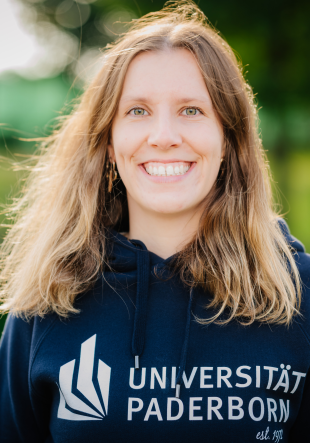Second funding phase in the DAAD and BMBF ‘International Virtual Academic Collaboration’ (IVAC) programme approved
Learning with and from each other: This is the goal of a Paderborn University teaching project to equip students for transnational co-operation as ‘training twins’. With a neuroscientific focus, students will develop and enhance common values, interests and skills in the fields of exercise science and physiotherapy. Digital collaboration formats are to be leveraged to encourage students from Kenya, South Africa and Germany to pursue a career in research in the field of ‘applied neuroscience in exercise and therapy’ from early on. The project, which is set to enter its second funding phase, is financed by the German Academic Exchange Service (DAAD) with funding from the German Federal Ministry of Education and Research (BMBF). Based in Professor Jochen Baumeister’s Exercise Science and Neuroscience research group, it is the only project of its kind in this funding line in the field of sports science in Germany.
The first funding phase, which runs until the end of this year, has laid the foundation for a long-term teaching and learning collaboration between Paderborn University and the Jomo Kenyatta University of Agriculture and Technology in Nairobi. It has resulted in the establishment of jointly offered online course ‘#GetYourGamePlan’, in which eleven Paderborn students and 16 students from Nairobi have participated. The course, developed for students on the ‘Applied Sports Science’ and ‘Physiotherapy’ Bachelor programmes, was provided on Paderborn University’s teaching and learning platform. In Summer Semester 2021, in innovative digital teaching and learning formats, the students gained an initial application and problem-oriented insight into future research fields and were given methods and tools for their personal development plan. Course co-ordinators Sarah Vogt and Katrin Hemschemeier from Paderborn University are extremely satisfied with outcome: “Most of the students said that they’d developed a keen interest in applied neuroscience in exercise and therapy through the course and that they want to go on to specialise in this field. The majority believed the course helped them improve their intercultural and digital skills.”
The second funding phase is scheduled to begin in January and will run until the end of September. The project partners will work on optimising, expanding and scaling the interdisciplinary teaching and learning collaboration between Paderborn University, the Jomo Kenyatta University of Agriculture and Technology in Nairobi and new project partner Stellenbosch University in South Africa. Joint summer school ‘#HandsOnAppliedNeuroscience’ is also scheduled to take place after the summer semester. Based on the online course planned for the summer semester, students from the three universities will collaborate to work on country-specific health-related intervention topics in a problem and process-oriented manner and learn about relevant tools and methods in the lab. At the same time, they will translate neuroscientific-related sport and health problems into future-relevant research topics and form interest-based ‘training twins’, with the aim of giving their Master’s or postgraduate course a transnational dimension.
For the project partners, it is also about ways to support the ‘training twins’ effectively. To this end, eligibility and recruitment concepts will be developed in the second funding period, alongside the programme modules for effective support and supervision of the ‘training twins’, as well as for organisation and implementation purposes.
Nina Reckendorf, Stabsstelle Presse, Kommunikation und Marketing



